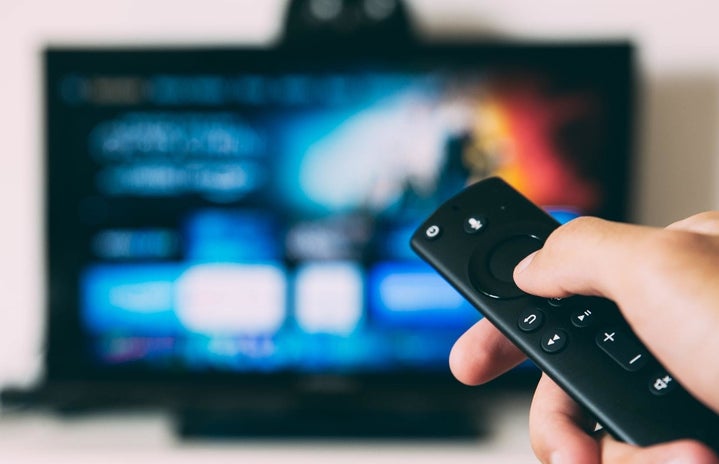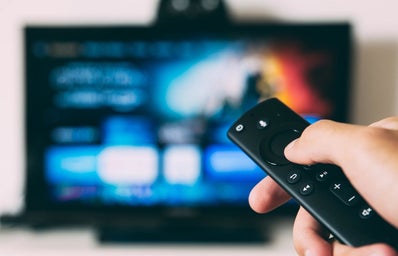“Oh, you’ve watched Friends too? Who’s your favorite character?”
If you’ve ever watched what is (arguably) the most popular show of all time, you have probably had this conversation. If you happen to have read or watched the Harry Potter series, you know which Hogwarts house you and your friends belong to. If you haven’t, chances are someone’s told you.
Sometimes, a work of art leaves such a mark on our collective consciousness that it almost becomes a part of our lives. Meeting a stranger who gets your ‘Kuch Kuch Hota Hai’ references is meeting a friend. Maybe the reason why some movies, shows, or books end up becoming so popular and loved is because they are the foundation of many of our friendships. More importantly, they evoke a sense of nostalgia because, in many ways, we grow up with them. However, a huge part of growing up is realizing that some things are not as perfect as you think they are.
When someone first pointed out to me that ‘Friends’ was problematic, I dismissed this notion completely. Yes, maybe there are a few jokes here and there that haven’t aged well, but that was no reason to start what I then called ‘overreacting.’ Unfortunately, once this thought is planted, it’s hard to make it go away. The internet did not let me forget it either. From articles like ‘15 Moments When Ross from Friends was the Worst’ to people calling out the show on their Instagram stories, there was only so much I could ignore. Some episodes which had seemed only mildly irritating at first had now become uncomfortable to watch. The transphobic portrayal of Chandler’s relationship with his father, the constant fat-shaming, and the lack of diversity started to get on my nerves. Gradually, perhaps without even realizing it, I stopped watching the show.
Millions of Harry Potter fans around the world feel the same way about the series. The absence of almost any people of color in the books followed by the casting of African American actress Noma Dumezweni in the role of Hermione Granger and the sudden revelation that Albus Dumbledore was supposedly homosexual have come across as afterthoughts on the author’s part and rather tokenistic moves. Most recently, her trans-exclusionary tweets have sparked outrage online, with celebrities and even actors from the Harry Potter series disagreeing vehemently with Rowling’s statements.
Closer to home, what was once considered heartthrob Shahrukh Khan’s Golden Age has now proved to be misogynistic and homophobic. As hard as I try to concentrate on the passionate, stereotype-shattering women in ‘Chak De India’, I can’t help but shudder and change the channel when I hear coach Kabir Khan use a transphobic slur while beating up a man in a food court for what he considered a display of ‘unmanly’ behavior. Anjali’s ‘transformation’ in ‘Kuch Kuch Hota Hai’ makes me squirm uneasily in my seat.
I’ve often made excuses for such things thinking, “It was released such a long time ago” or “I shouldn’t rate it by today’s standards” but I have come to realize that to make allowances for problematic scenes where important issues are trivialized or treated as a joke is to disrespect all those who were protesting for those issues during the same time. To separate the art from the artist is a privileged stance in itself. Should we then, as viewers and readers adopt the ‘cancel culture’ that is so prevalent today?
Canceling refers to removing support for public figures in response to their objectionable behavior or opinions. This can include boycotts or refusal to promote their work. Actress and activist Jameela Jamil of ‘The Good Place’ fame stresses on the need for a ‘Call Out Culture’ wherein we hold people accountable for their mistakes and give them a chance to be better. She rightly points out – “If we cancel people forever, when they have demonstrated immense change and remorse, we devalue progress. It isn’t going to get us anywhere.”
Loving a show or a book or a celebrity is like having a crush. When you first realize you like them, you feel like you have finally found ‘The One.’ Flowers smell more beautiful; violins play happy music in the background and you want to spend every moment of every day with them. Then, one day they walk in practically waving two brightly colored red flags in your face and all of a sudden you aren’t attracted to them anymore.
When the things you once loved reveal themselves to be problematic, you have to hold them accountable for it. Cherish them for the role they played in your life, not for what they are. You are still allowed to enjoy the parts of them that made you feel special, but acknowledging their flaws? That’s what growing up is all about.


